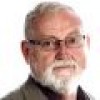It’s Easter, and we’ve got the day off. So let’s think about something different. As a community, we spend a fortune each year on health, mainly through governments. What has economics got to tell us about healthcare? And, since it’s Easter, what light has Christianity got to shed on how we fund healthcare?
One man who’s thought deeply on these questions is Dr Stephen Duckett, Australia’s leading health economist, whose career has included academia, running government health departments, and the Grattan Institute think tank. He’s now back in academia, at the University of Melbourne.
Since there’s never enough money to spend on healthcare, hard decisions have to be made about what can be done and what can’t.Credit: Michel O'Sullivan
Duckett has long been a lay reader in the Anglican Church. He’s recently completed a doctorate in theology, awarded by the Archbishop of Canterbury. He’s turned his thesis into a book, Healthcare Funding and Christian Ethics, published by Cambridge University Press.
One way to run a hospital is to let the doctors and nurses do as they see fit until the money runs out but, for several decades, health economists’ advice has reshaped the health system, helping to ensure that the money available is spent in ways that do the most good to patients.
One definition of economics is that it’s the study of scarcity. We have infinite wants, but limited resources of land, labour and physical capital to achieve those wants. So we must carefully weigh the costs and benefits of the many things we’d like, so we end up choosing the particular combination of things that yields us the greatest “utility” (benefit) available.
Stephen Duckett, whose career has included running government health departments, is now at the University of Melbourne.
Since there’s never enough money to spend on healthcare, hard decisions have to be made about what can be done and what can’t, what drugs should be subsidised and what can’t, who should be helped and who turned away.
Health economists analyse the cost-effectiveness of the various options to help governments and hospitals make their choices, working out the number of “quality-adjusted life years” each option would add.
The Scotsman called the father of modern economics, Adam Smith, saw it as a moral science but, as economists have striven to be more “rigorous” (which mainly means more mathematical) this touchy-feely stuff has fallen away.
When funding healthcare, don’t forget the caring bit
 11
11
 23
01.04.2024
23
01.04.2024
It’s Easter, and we’ve got the day off. So let’s think about something different. As a community, we spend a fortune each year on health, mainly through governments. What has economics got to tell us about healthcare? And, since it’s Easter, what light has Christianity got to shed on how we fund healthcare?
One man who’s thought deeply on these questions is Dr Stephen Duckett, Australia’s leading health economist, whose career has included academia, running government health departments, and the Grattan Institute think tank. He’s now back in academia, at the University of Melbourne.
Since there’s........
© The Sydney Morning Herald
 visit website
visit website






















 Toi Staff
Toi Staff Gideon Levy
Gideon Levy Belen Fernandez
Belen Fernandez Rami G Khouri
Rami G Khouri Mort Laitner
Mort Laitner Donald Low
Donald Low Ali Fathollah-Nejad
Ali Fathollah-Nejad Nikkei Editorial
Nikkei Editorial
